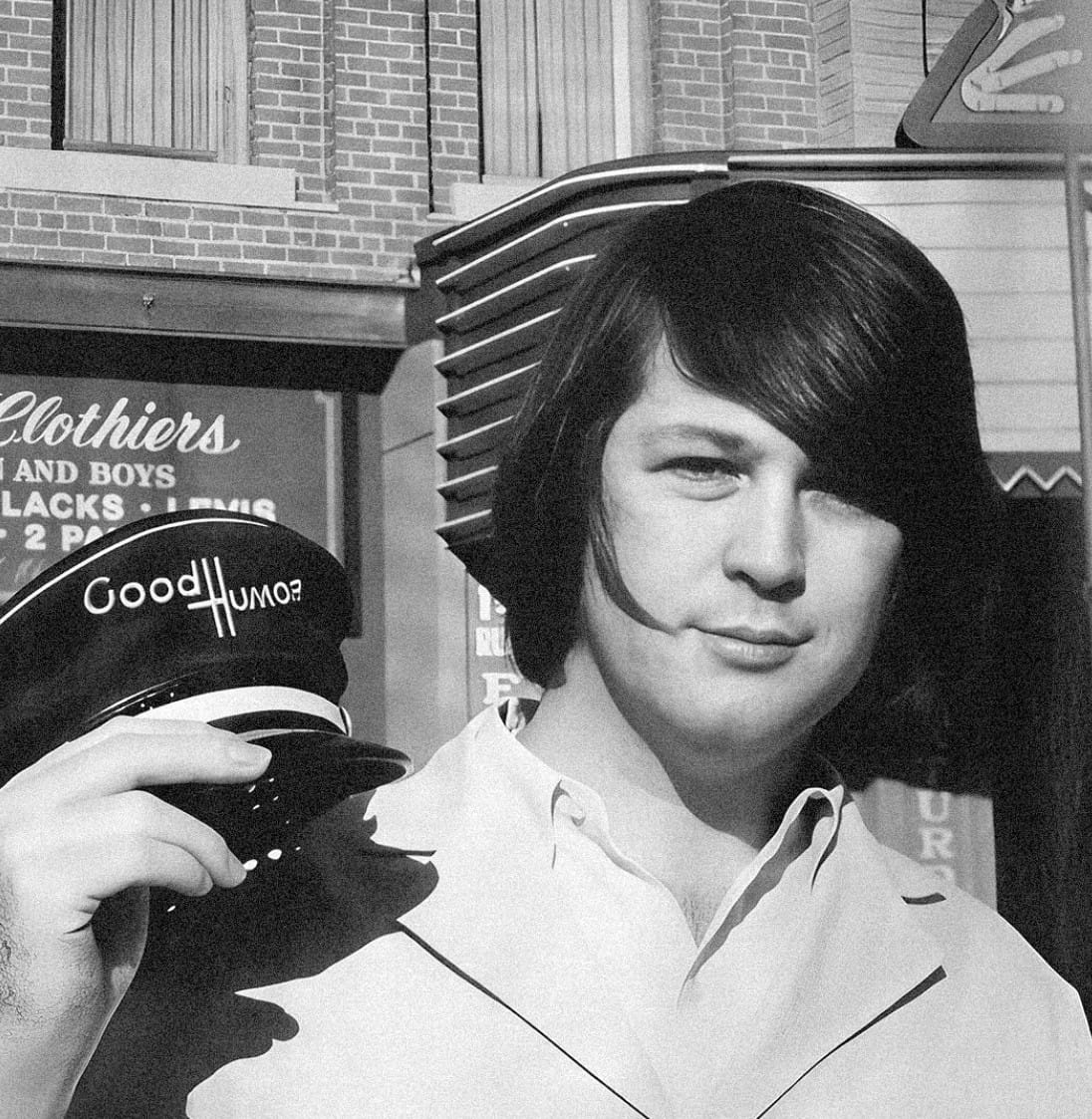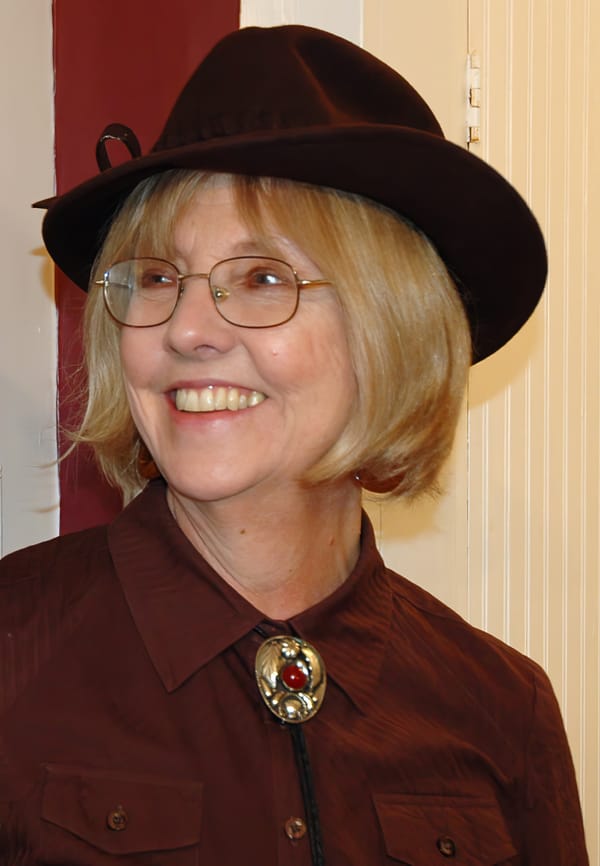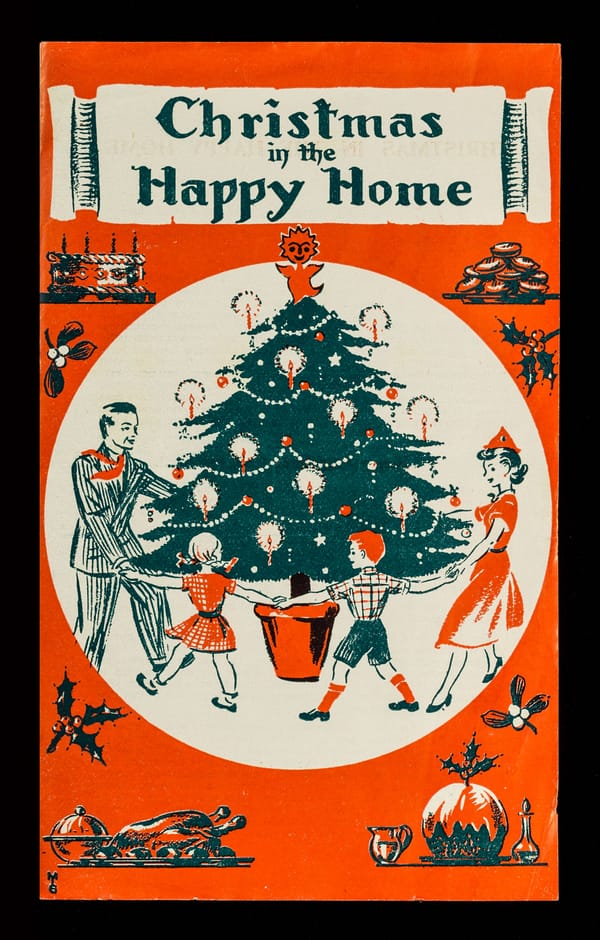Remembering Brian Wilson

With every big, booming song gifted to us from The Beach Boys — from “California Girls” to “Sail On, Sailor” — you’ll find a leafy cousin, a condensed, sleepier mini-symphony like the hula ballad “Little Pad,” or, earlier, “The Warmth of the Sun.” One constant, however muted, is the presence of light. In particular, the sun (and its California variety), is a character found throughout the arc of songs written and re-envisioned by lead Beach Boy Brian Wilson, who died just yesterday at 82. First the “dawn is breaking” on the band’s debut single “Surfin’”; much later, after a lot of life, brother Dennis Wilson sings “You Are My Sunshine” in a plaintive minor key on the SMiLE tapes. Listening to this band is to feel not just the big, omnipresent light all around us, but to search for it in corners.
In the early sixties, at a time when top-down invention and artifice were the preferred tools of labels and marketers — before authenticity was itself a sales tool — Brian Wilson began steadily to push away from visions of sand and surf and into his sublime musings on God and growing up. In my read, this is evident earliest on side two of 1965's The Beach Boys Today!, beginning with “Please Let Me Wonder” and ending with “In the Back of My Mind” (note: the actual closing track, “Bull Session With Big Daddy,” is a lighthearted “skit,” and I conspiratorially wonder if it was included to bring the mood “up” after such heart-bearing and often somber material).
Either way, no triage could stop what was happening not just to the band, but to the country as the decade staggered forward. At some point, the early Capitol records-crafted image of The Beach Boys cracked. The naive family-band apparatus could not suppress its id forever — not with its forerunner, Brian, emancipated forever from the yoke of his former manager and abusive father, Murry. The music that escaped from Brian’s mind in the following years was more personal, and also stronger and wilder. I won’t get into the Pet Sounds into SMiLE saga here too much (though I do devote an essay to the topic in Chalk Diary) as the questions surrounding the abandoned latter album have been mostly answered by Brian’s own rerecording of that material and a delayed but pretty full accounting of many of the SMiLE sessions. Instead, let's chase a different light.
Entering into 1970, The Beach Boys were unburdened by most of their celebrity and had split from Capitol records. Meanwhile, psychedelic rock had mutated, often discarding the peaceable harmonies and melodics of pop and fusing instead to the wailing chaos of garage and acid-dripping squall. In a time of angrier, bigger music, The Beach Boys detached themselves from a jumble of musical directions and released their most holistic and steady album in years. One title for the album was apparently going to be “The Fading Group Rock Revival,” which would have added an ironic solemnity not present on the actual recordings.
Instead: Sunflower. The band could no longer wholly rely on Brian’s writing and production as ballast, but, to quote Proverbs, “As iron sharpens iron, so one person sharpens another.” The Beach Boys had learned from Brian and were asserting themselves creatively. Dennis Wilson leads off the album with the spinning “Slip On Through,” and shares the tender “Forever.” Bruce Johnston, brought on to tour with the band when Brian preferred not to, adds the bitter “Tears in the Morning” and co-wrote the wonderful “Deidre” with Brian. Carl, Mike Love and Al Jardine all have songwriting credits. Compared to the inventive but uneven Surf’s Up released the next year, this is the band at its most cohesive and determined. I began my journey into loving The Beach Boys before I heard a single song on this album, and now it's one of my favorites. Sunflower complicates myth-making around The Beach Boys because a band going through so much should not have made a record so at ease and still so exciting. It asks us to imagine their music on their terms, not on what we expected to hear. The light was still there, even though not everyone could see it.
Brian Wilson is frequently treated as stand-in for the druggy excesses of the sixties, or defined by the abuse he suffered as a child and his mental illness. These are incomplete stories. Time and discovery have reaffirmed the music that wasn't properly heard at the time, and then he just kept going, completing SMiLE almost forty years later under his own name, and then reuniting with his old band for That’s Why God Made the Radio in 2012. His final album while alive — I’m sure something will be pressed posthumously, if not a lot of something — came out in 2021. At My Piano is a rerecording of his old songs with no vocals, the piano sound subdued and gauzy.
The Beach Boys story began with the myth of a shiny pop outfit composed of friends and family enjoying amusement parks, root beer, and a wholesome Party! When that broke, the mythology curdled into a shadow version scored by LSD, eccentricities, and both personal and professional abuse. Parts of those stories are settled biography, some are exaggeration, but we can also understand it as the culture and media talking to itself, trying to make sense of a decade where everything changed so quickly. With the benefit of decades, and of Brian’s own strength and that of his family (especially his wife Melinda, who led him out of the worst of the worst), we can see, even from a vantage, that he became the full person that others (and sometimes he) tried to smother. He was, at the end, just Brian Wilson, a humble genius who wrote music that guides us like sunlight when we're lost underwater. And finally, I think, Brian Wilson was happy. That matters most of all.




